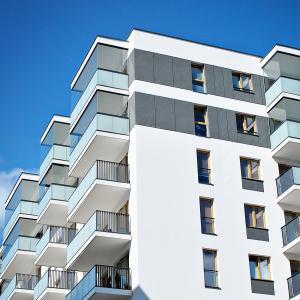
Is a Multi-Unit Dwelling the Right Choice for You?
If you are considering ditching the landlord and buying your next place to live, you may be considering options other than a traditional “single family” home. Like most of life’s options, multi-unit structures offer both advantages and disadvantages. Carefully examine all the pros and cons.
Amenities
Pros - If you want a tennis court, a swimming pool, fitness facilities and social opportunities right outside your door, a large condo or multi-unit complex may be your best choice.
If you want someone else to handle big things, like keeping the roof in good repair, then a multi-unit property will offer those advantages at a much lower price tag, since you’ll only be paying your portion (instead of financing them on your own). Most larger complexes also have a handyman on site and/or a superintendent to handle repairs and system issues.
Cons – Great amenities aren’t free. Expect to pay a regular (monthly or annual) maintenance fee to the condo or homeowner’s association. This means that, in addition to your mortgage payment, you will have to budget for these extras.
It also means that after you pay off your mortgage, you will continue to pay monthly bills to live in your home, and those expenses will undoubtedly go up over time.
Privacy & Security
Pros – You will have people nearby should you need help, or have an emergency. You will also have the opportunity to form friendships with your neighbors without the need to travel more than a few yards. Most larger complexes have community areas for entertaining and group gatherings, and many have planned social activities.
Additionally, your home will be a less attractive target for burglaries, simply due to the close proximity of other people. There are easier targets to be had, and thieves prefer easy targets. Most larger complexes also have built-in security systems.
Cons – You will be living among others, even when you would prefer to be alone. In larger complexes, there can be “rush hours” for elevators and “traffic jams” in the parking lot as many people try to leave or return home at the same time.
There will also be shared walls, and possibly ceilings and floors. If you have great neighbors, that’s fine. If you have neighbors who like stomping, listening to loud music or arguing, you will be stuck. When this happens in an apartment complex, you can give notice and move, if you decide you can’t take it anymore. If you own the unit, it’s a much more involved and expensive process.
Before Buying
Tour with a Critical Eye
- Check out the condition of the common areas. Are they well-maintained? Are there cracks in the sidewalks? Are the walls and floors in good shape?
- Do the elevators run smoothly? Are there enough elevators for the number of units?
Talk with Residents
- Interview current residents (preferably without management present)
- Are they happy with the maintenance schedules? Do they find the association to be responsive when issues arise?
- Are the processes for getting repairs made cumbersome or convenient?
- What’s the social scene like?
- Would they buy here again?
Safety/Convenience
- What kind of security does the facility offer?
- Are there procedures and/or limitations on visitors?
- Is there ample parking? Is it indoor or outdoor?
- Is there access to storage space outside the units for seasonal items, etc.?
Money Matters
- How much are the maintenance fees?
- Are they paid annually or monthly?
- What is the expected cost of property taxes, utilities, etc.?
- What other expenses may occur on an occasional basis?
If you want the investment of home ownership, but live a busy life or prefer a life without maintenance headaches, a multi-unit complex may be exactly what you want and need. But it’s important to be honest about what your priorities and preferences before deciding to purchase any house—whether it’s a single-family dwelling or a condo, townhome, etc.
It’s also a good idea to work with an Accredited Buyer’s Representative (ABR®) in your home search. An ABR® has received special training in representing buyers in all types of home purchases and can point out additional considerations for specific properties in your market.
Together, you’ll be able to find a home that fits your needs and your lifestyle, and will improve the quality of your day, every day.
